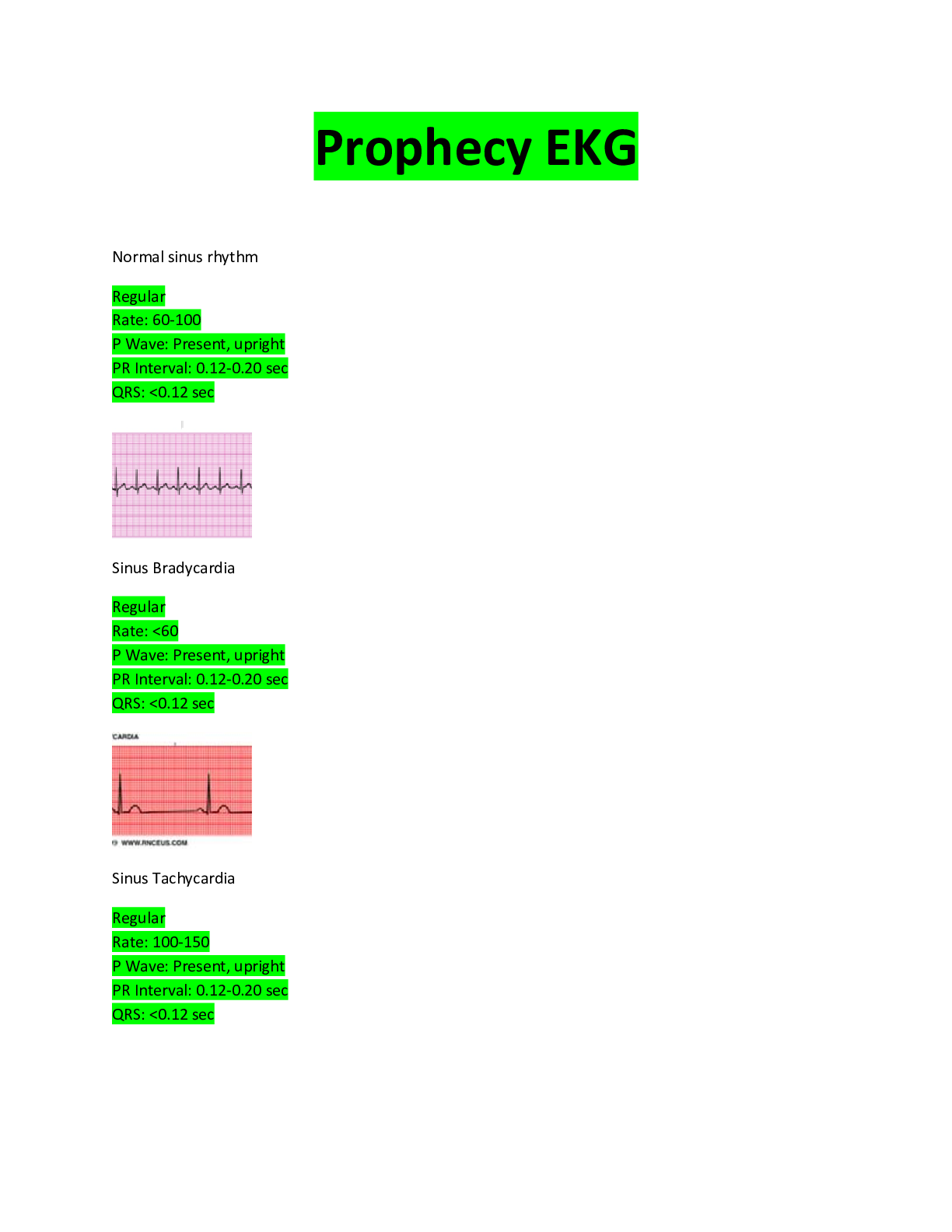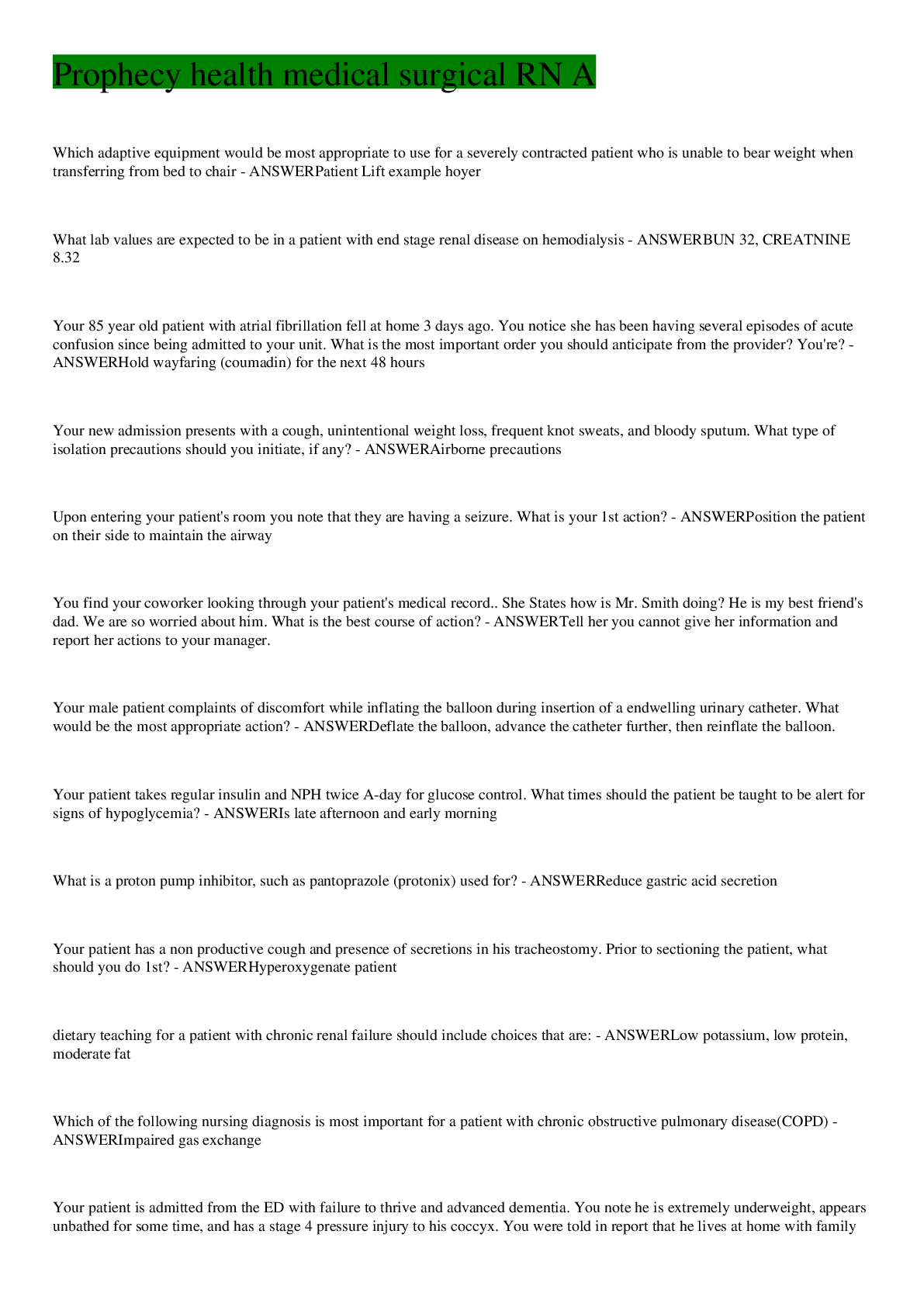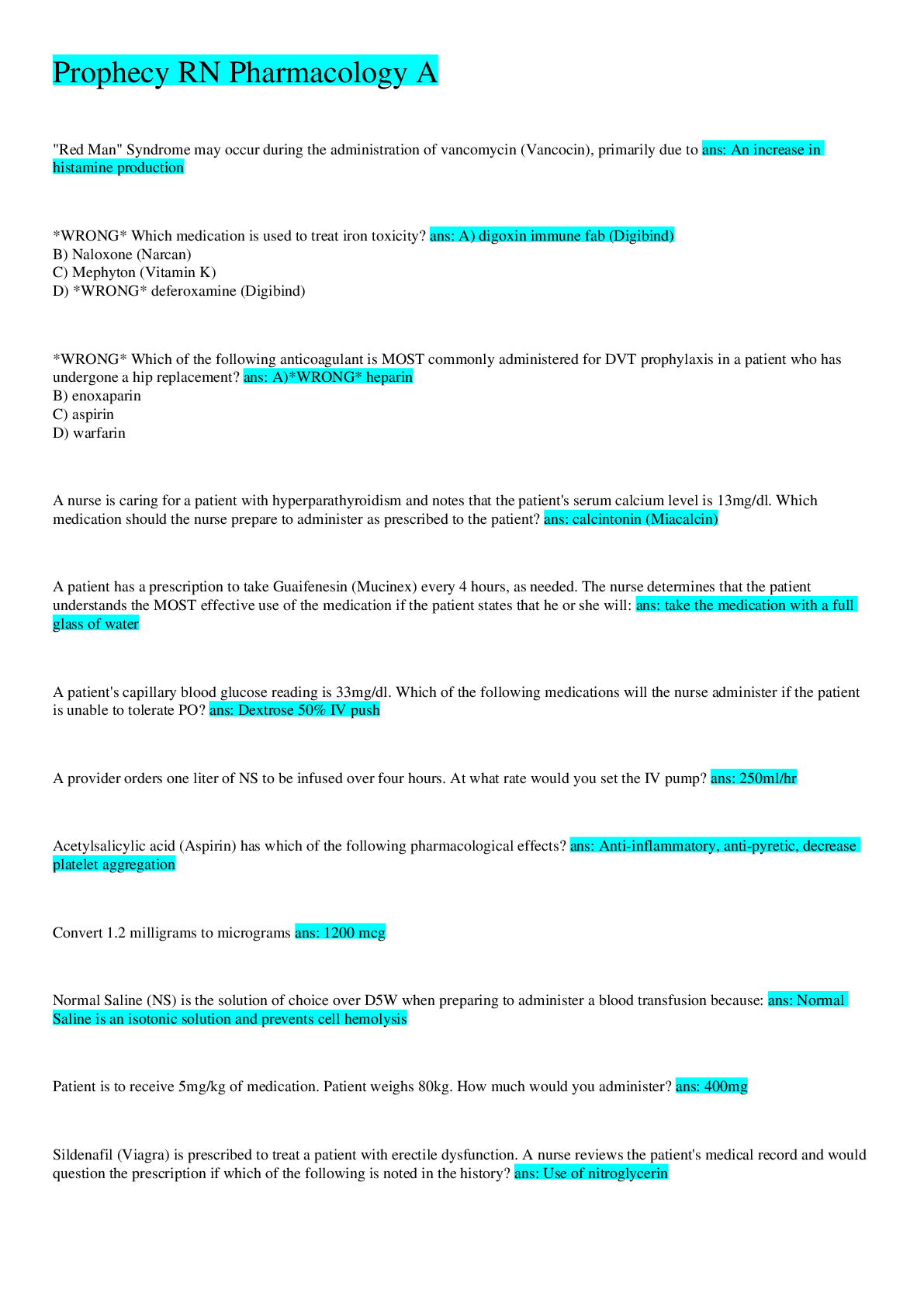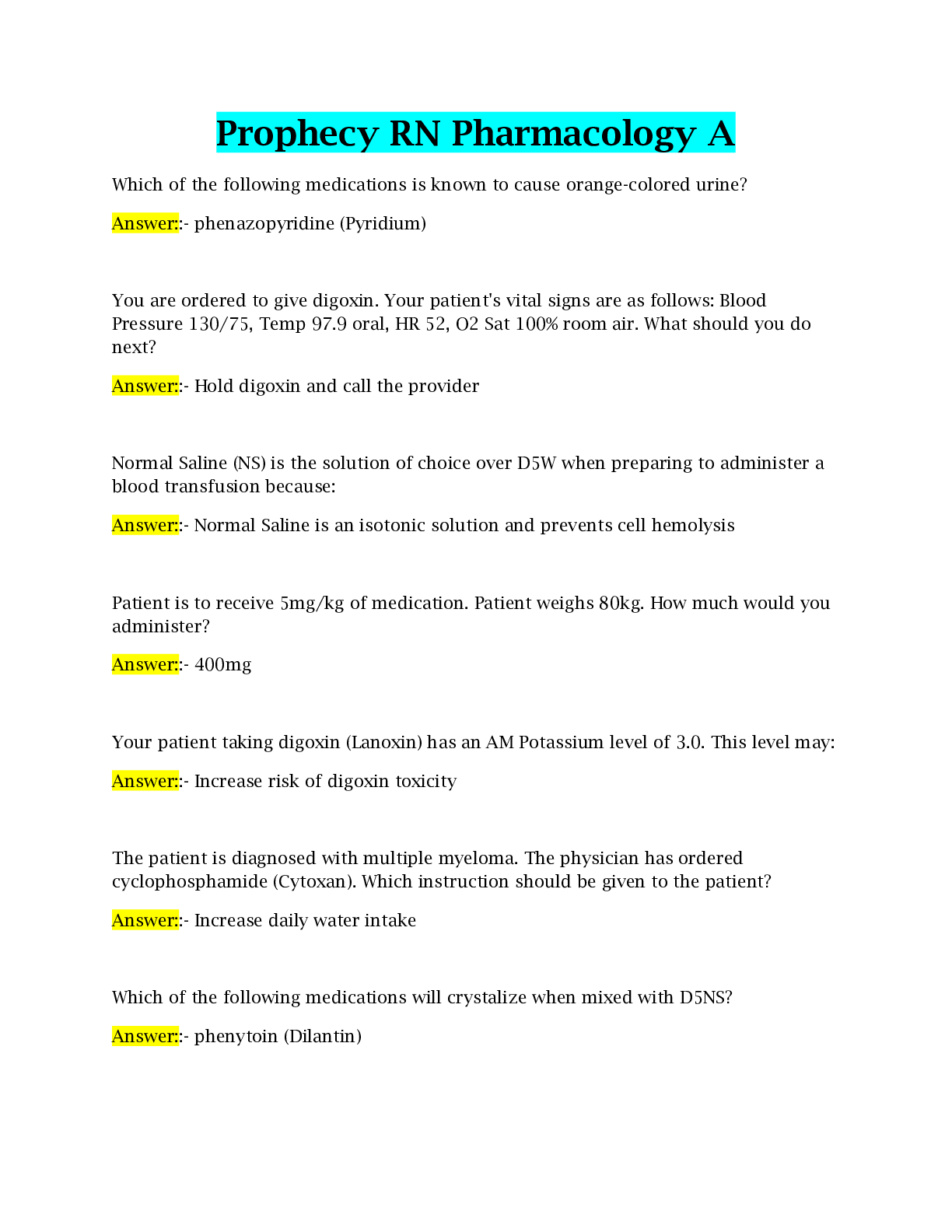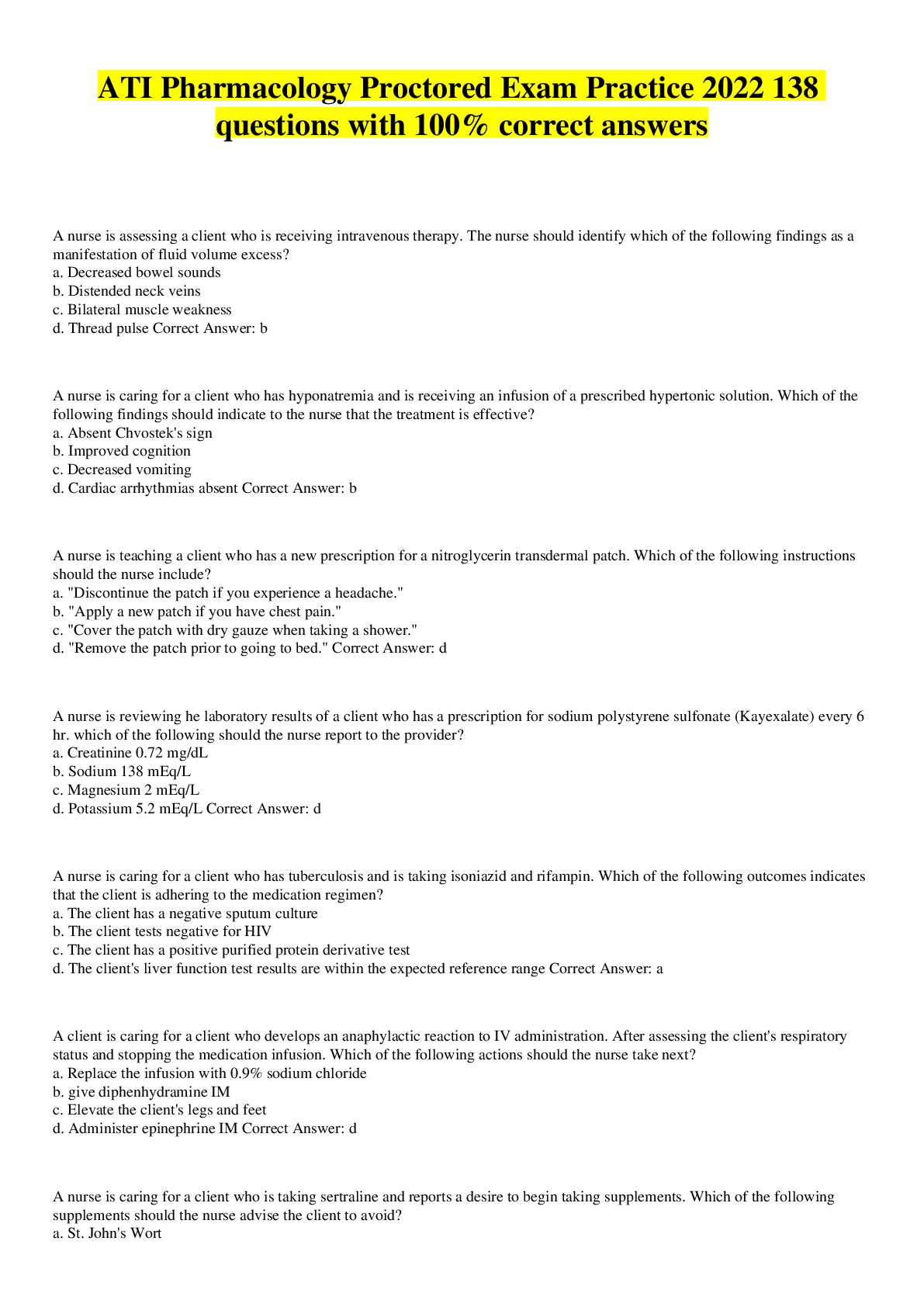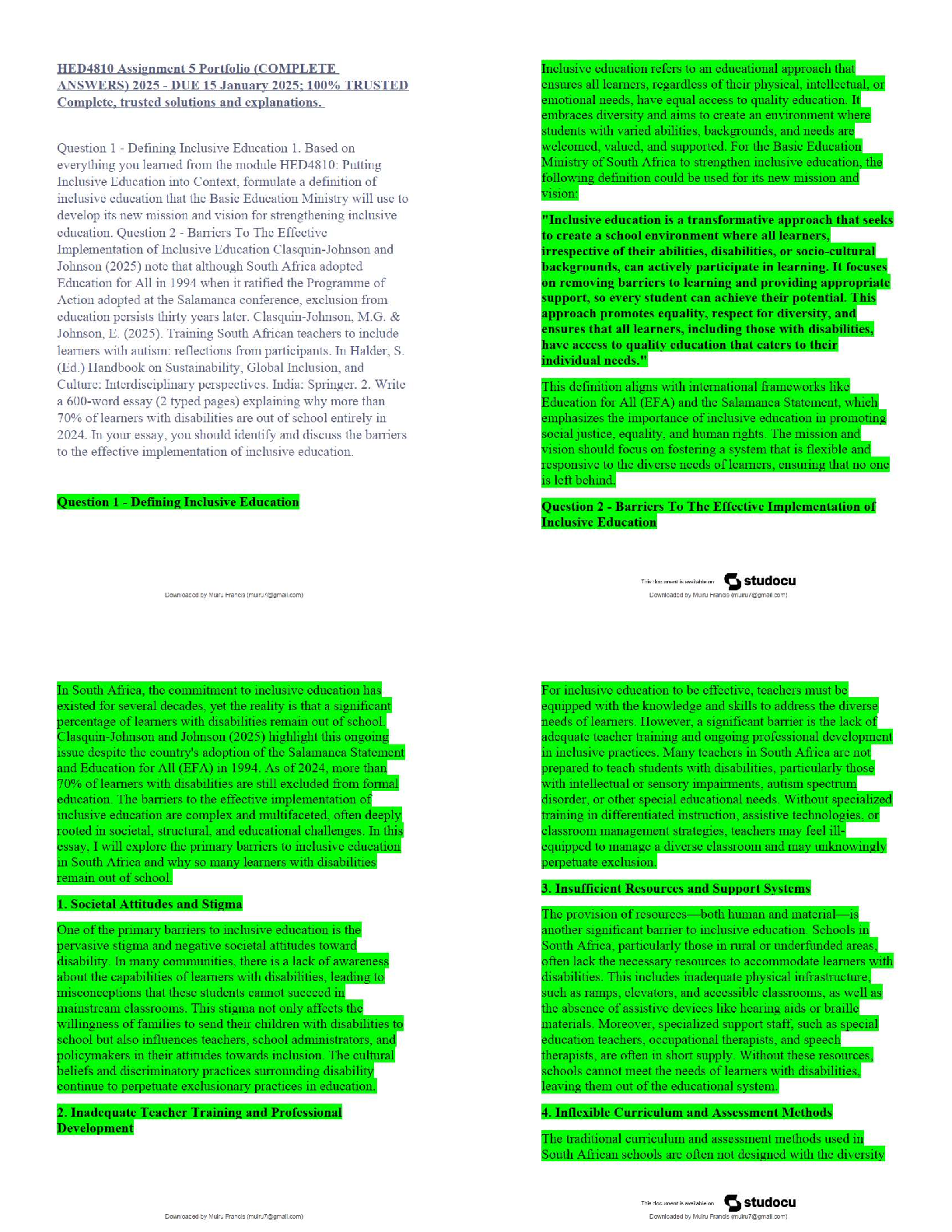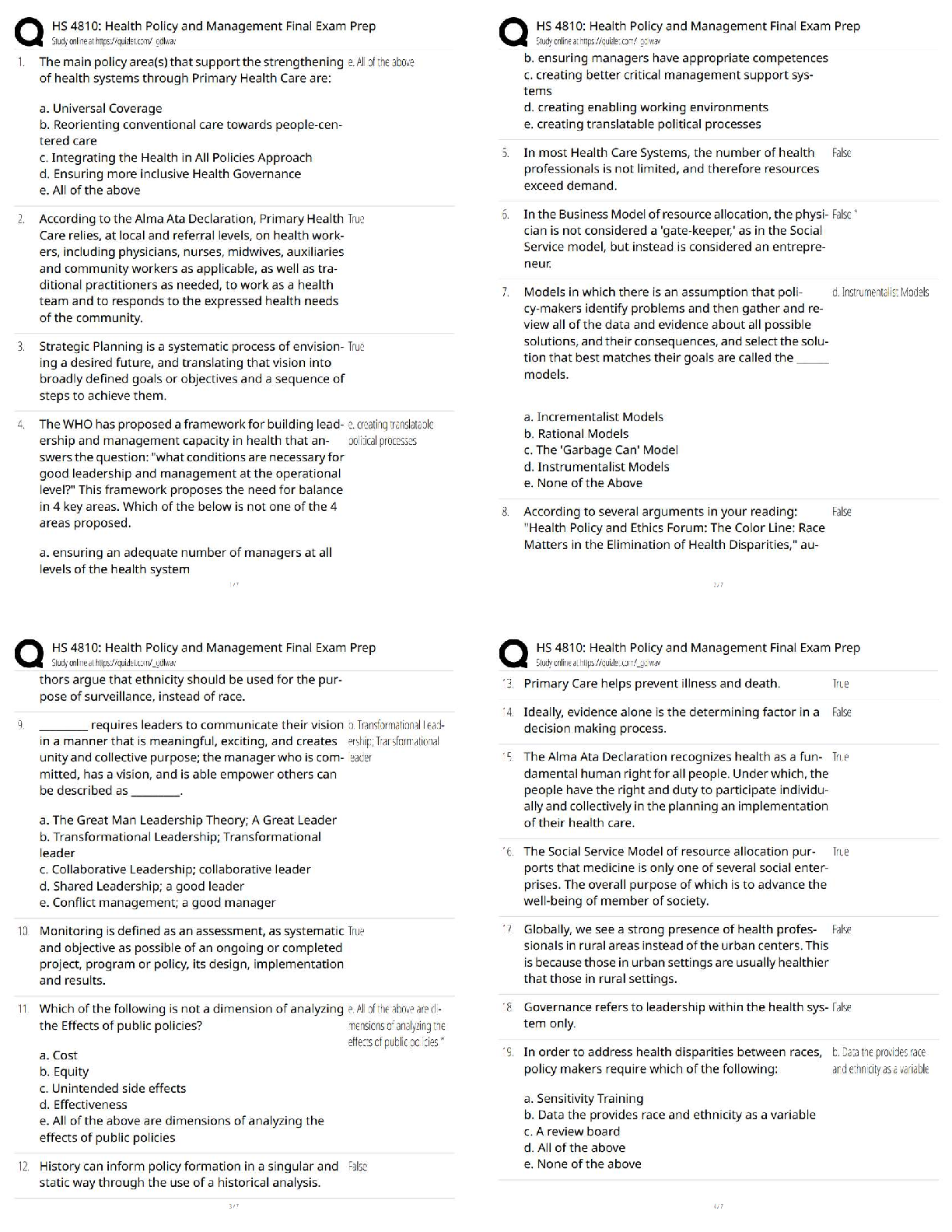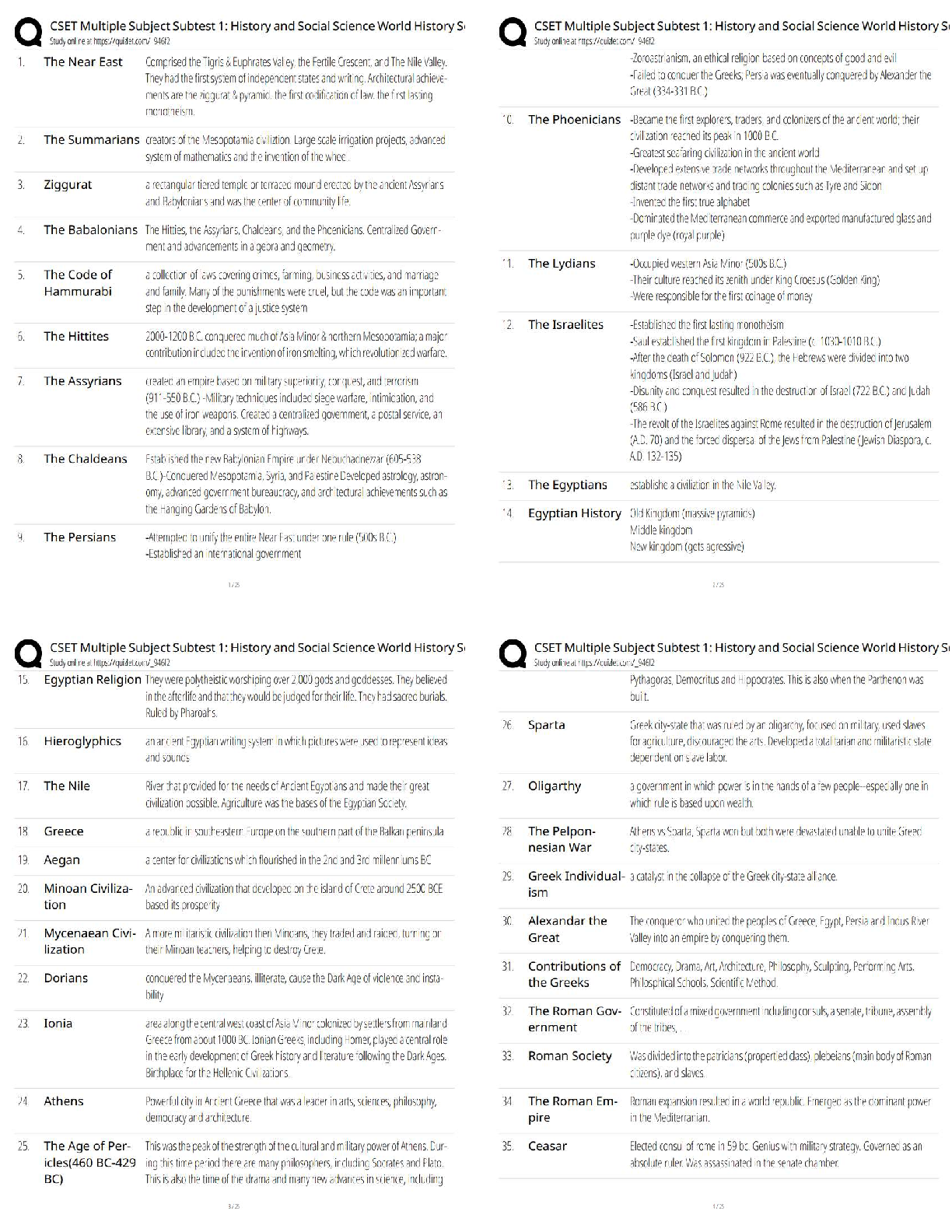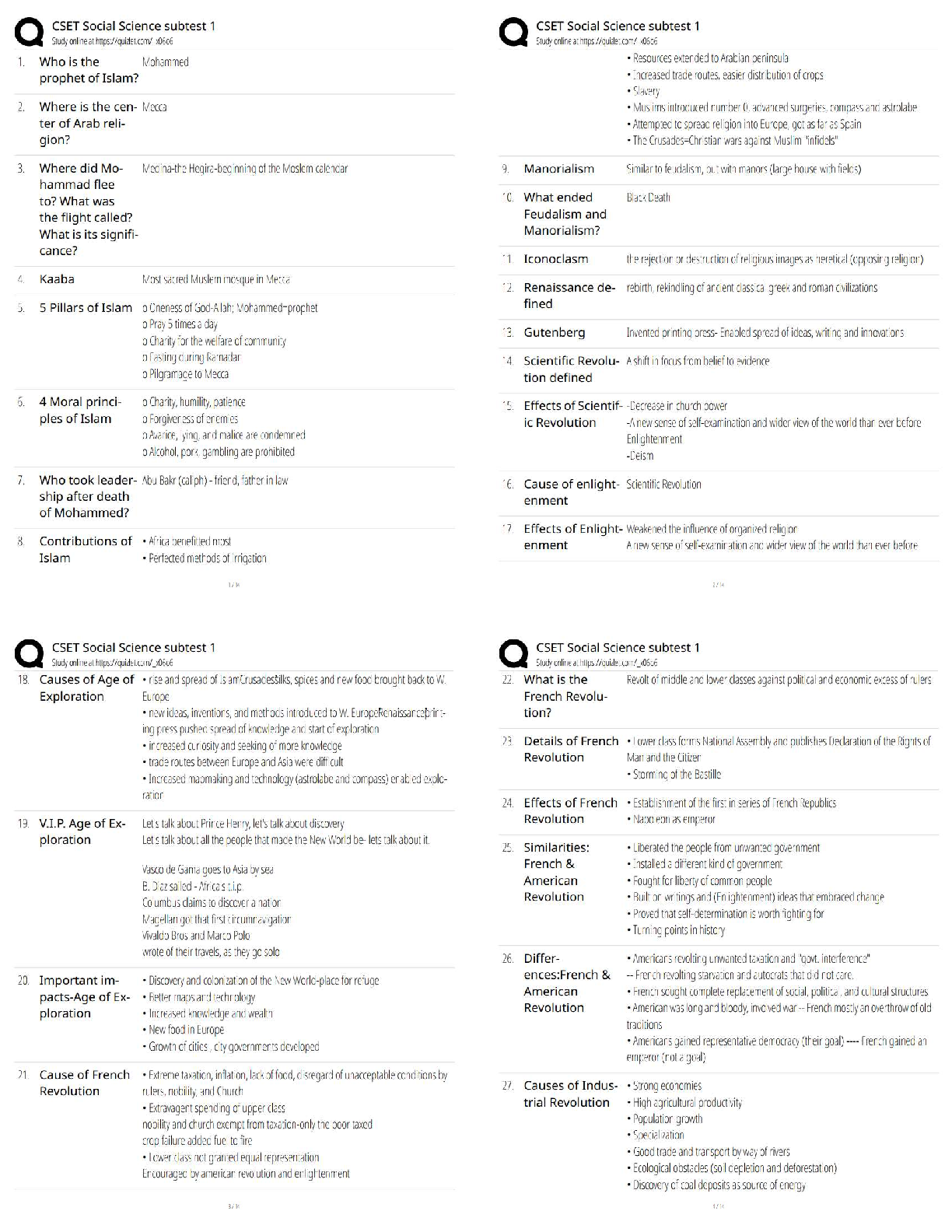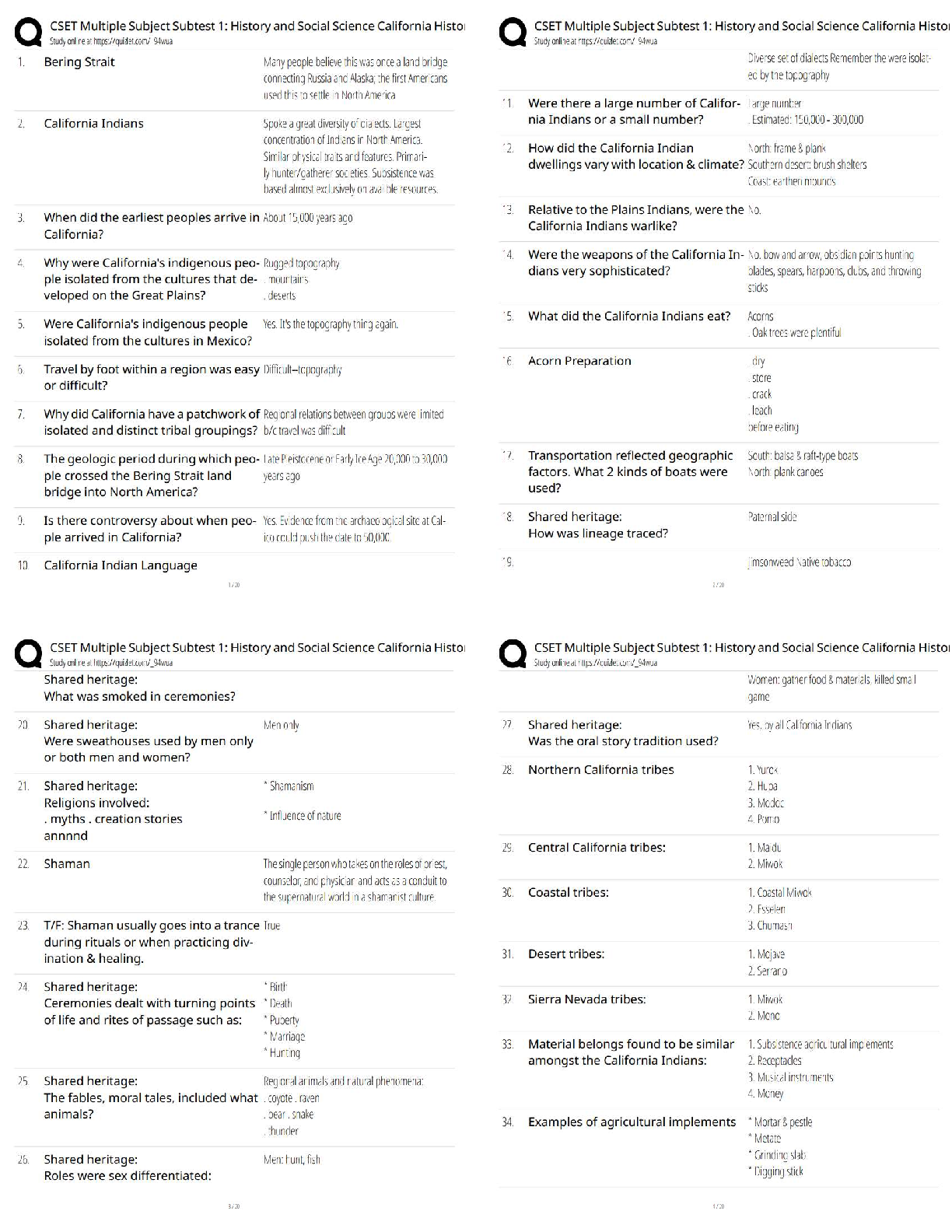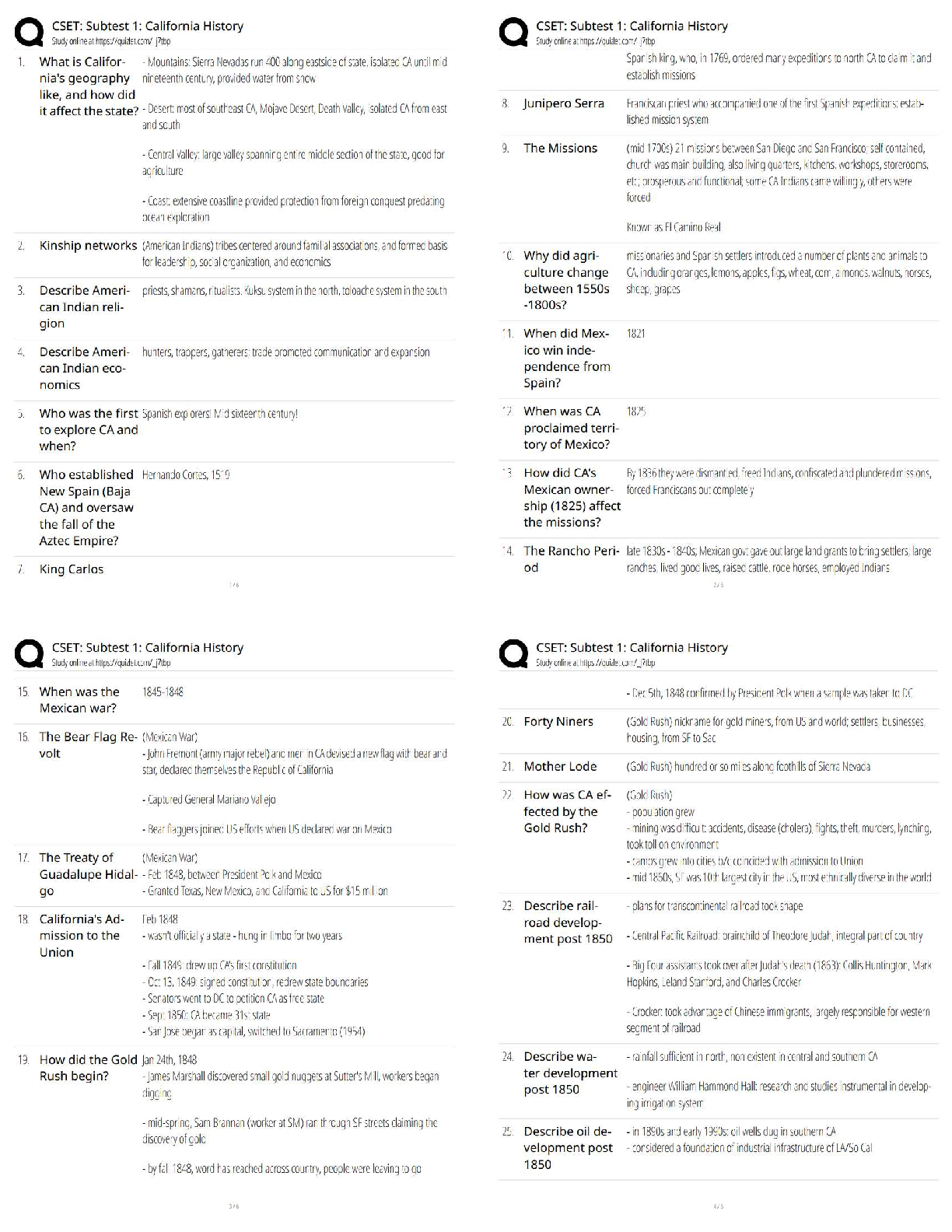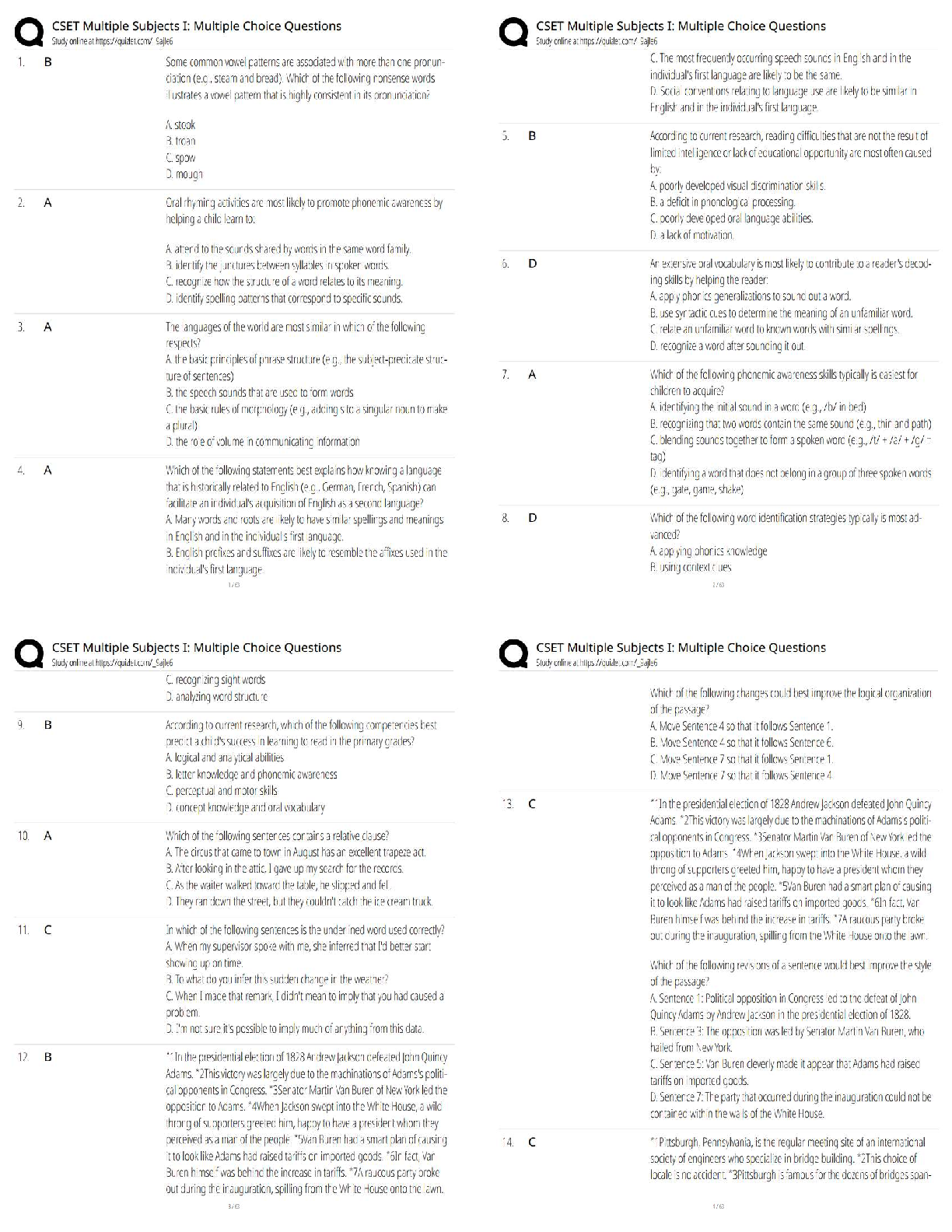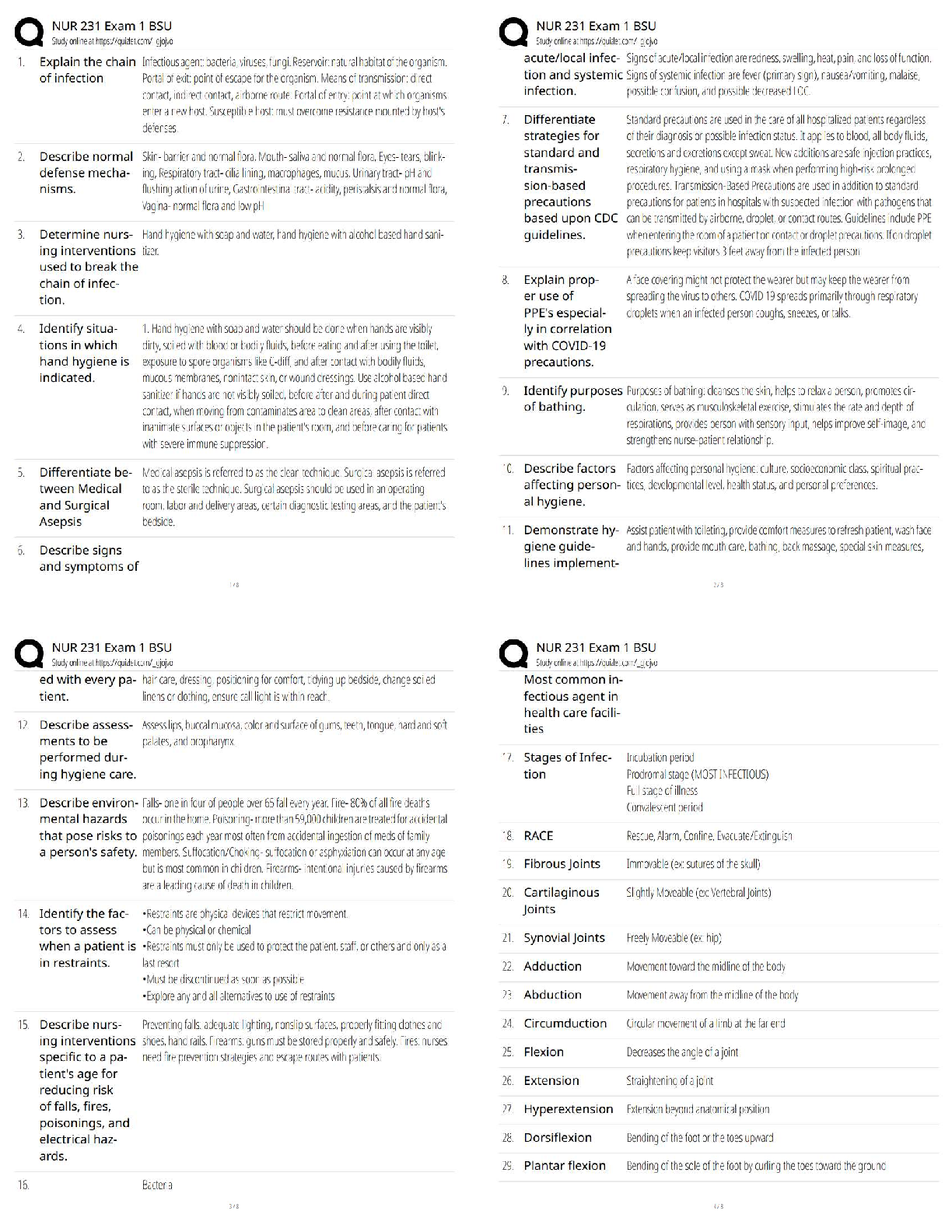Biology > QUESTIONS & ANSWERS > Psych Exam 2 - Ch. 12 (Schizophrenia Spectrum Disorders) (All)
Psych Exam 2 - Ch. 12 (Schizophrenia Spectrum Disorders)
Document Content and Description Below
Psych Exam 2 - Ch. 12 (Schizophrenia Spectrum Disorders) A patient diagnosed with schizophrenia was experiencing paranoid thinking. Which statement by this patient most clearly indicates the antips ... ychotic medication was effective? ans: "I think the staff wants to help me." Recognizing that the staff desires to be helpful suggests the paranoia is gone or has subsided. Finishing an art project, thinking the nurse is giving too much medicine, and believing that one no longer has a problem show a statement of accomplishment, paranoia, and anosognosia. pp. 203-205, Case Study and Nursing Care Plan A patient with schizophrenia was changed to clozapine 3 weeks ago. The patient calls the clinic nurse complaining of sore throat, fever, and malaise. Which laboratory test would be most helpful in determining the cause of these findings? ans: Complete blood cell count Agranulocytosis is the reduction of white blood cells (WBCs) and is a possible adverse effect of antipsychotic drugs, particularly clozapine. Chief complaints are flulike symptoms. A complete blood cell count would show the reduction in WBCs. Serum lithium level, liver panel, and urinalysis are not necessary. p. 217 A nurse is caring for a patient with schizophrenia. Upon the nurse's report, the primary health care provider prescribed 25 mg of diphenhydramine hydrochloride to the patient. What had the nurse reported to the primary health care provider about the patient? ans: The patient has tremors and tardive dyskinesia. Patients with schizophrenia are generally prescribed antipsychotic drugs. These drugs cause extrapyramidal side effects, like tremors, and abnormal involuntary movements, like tardive dyskinesia. Diphenhydramine hydrochloride 25 mg by the intramuscular or intravenous route is prescribed to such patients to treat extrapyramidal side effects. Diphenhydramine hydrochloride is contraindicated in patients with peptic ulcer and asthma because it causes stomach distress like nausea, vomiting, and diarrhea. Physostigmine and benzodiazepines are administered to control these symptoms. Photosensitivity and mydriasis are symptoms of anticholinergic toxicity. Dry mucous membranes can be a symptom of anticholinergic toxicity but are not a major concern with the administration of diphenhydramine hydrochloride. p. 211 The nurse is addressing a primary symptom of schizophrenia when ans: Reinforcing the patient's ability to interrupt intrusive paranoid thoughts Primary symptoms are ones that are directly caused by the mental illness, such as paranoid thoughts. Stress is a secondary symptom of schizophrenia resulting from stressors related to coping with the illness. A need for assistance while living independently is a secondary symptom of schizophrenia resulting from stressors created by the illness. Alcohol abuse is a secondary symptom of schizophrenia resulting from the use of alcohol to manage the stress of the hallucinations (a primary symptom). p. 193 A patient with schizophrenia was prescribed antipsychotics. After daily observation, the nurse finds the patient's blood pressure has decreased. What is the most appropriate action by a nurse before administering the prescribed drug to the patient? ans: The nurse should tell the patient to rise slowly. Antipsychotics block the α 2-receptor, which may cause hypotension. The nurse can give advice to the patient to rise slowly from the bed because the patient may feel dizzy as a result of reduced blood pressure. The nurse cannot administer the adrenergic agonist but can report to the health care provider if the patient's diastolic pressure falls below 80 mm Hg. The nurse should not stop administering the drug because that may worsen the schizophrenic symptoms. The nurse should not advise the patient to avoid fluid intake, because the patient may feel dehydrated and the total pressure exerted on the blood vessels maybe reduced. pp. 215-216, Table 12-6 A patient with undifferentiated schizophrenia lives in a community care home and takes olanzapine daily with supervision. During the patient's monthly outpatient visits with a psychiatric nurse, which assessment parameter takes priority? ans: Weight An important part of the nurse's role in the community is monitoring the patient's response to medications, compliance, and potential side or adverse effects. Key side effects of sexual dysfunction and weight gain are particularly important to monitor for persons taking antipsychotic medications. Olanzapine is an atypical antipsychotic drug that can cause significant weight gain, which results in diabetes for many patients. Neither height, mucous membrane integrity, nor pupil response takes priority over weight. p. 202, Box 12.2 A patient diagnosed with residual schizophrenia is uninterested in community activities, lacks initiative, demonstrates both poverty of content and poverty of speech, and seems unable to follow the schedule for taking prescribed antipsychotic medication. The case manager continues to direct care with the knowledge that this behavior most likely is prompted by ans: Neural dysfunction Schizophrenia is considered a neurobiological disorder. The course of schizophrenia involves recurrences. With each relapse further deterioration is noted. Residual schizophrenia refers to the disorder when active phase symptoms are no longer present and the individual is left with two or more of the following symptoms: lack of initiative, social withdrawal, impaired role function, marked speech deficits, and odd beliefs. p. 194 What statement is true regarding schizophrenia? (SATA) ans: -Schizophrenia is a potentially devastating brain disorder. -Social behavior and emotions are affected by schizophrenia. -The disorder often affects an individual's language and thinking skills. -The disorder disturbs a person's ability to determine what is or is not real. Schizophrenia spectrum and other psychotic disorders disturb the fundamental inability to determine what is or is not real. Schizophrenia is a potentially devastating brain disorder that affects a person's thinking, language, emotions, social behavior, and ability to perceive reality accurately. It affects more than 3.5 million people in the United States and is among the most disruptive and disabling of mental disorders. [Show More]
Last updated: 3 years ago
Preview 1 out of 9 pages
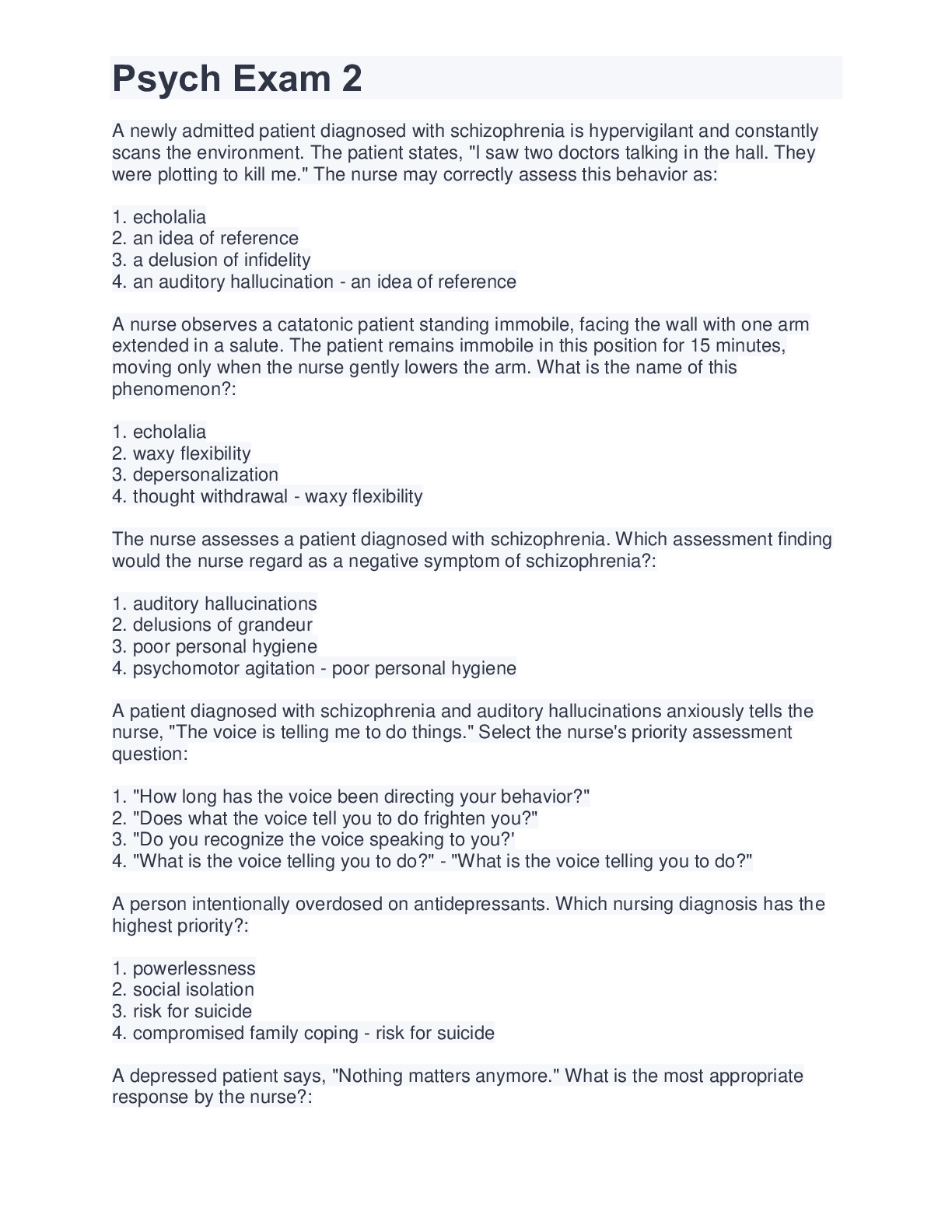
Buy this document to get the full access instantly
Instant Download Access after purchase
Buy NowInstant download
We Accept:

Reviews( 0 )
$11.00
Can't find what you want? Try our AI powered Search
Document information
Connected school, study & course
About the document
Uploaded On
May 23, 2022
Number of pages
9
Written in
All
Additional information
This document has been written for:
Uploaded
May 23, 2022
Downloads
0
Views
102




